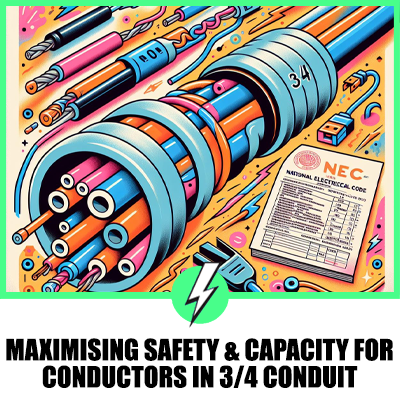Are Electricians Happy At Work?
Is the work-life balance of an electrician comparable with other trades? Is training to become an electrician all that it’s cracked up to be?
An electrician is a good job, and they rarely work weekends compared to other trades. Once you have become a skilled electrician, you have many options, such as working for a company of your choosing or becoming self-employed to increase your earning potential.

Contents
Who says electricians are unhappy at work?
According to Career Explorer, an online site that helps you decide what your next career could be, it is said to be accurate, but it’s algorithm-based, so you have to decide for yourself.
Career Explorer claims that electricians are not very happy in their work, with the industry ranking at a meagre 29% after surveying millions of people.
The company is Canadian based. Could you assume that the sample of millions of people (which is not many when the world’s population is almost 8 billion) is tangible when it comes to the UK?
It seems hard to believe that millions of electricians from around the globe log in to Career Explorer to vent their spleens over the difficulties of their jobs.
Is being an electrician a good career?
The demand for electricians is always high. With electricity being a major source of energy, it is unlikely now or in the next 100 years if anything is going to replace electricity if ever anything does.
In terms of stability and peace of mind, you would have to consider being an electrician one of the most stable jobs available in the job market today.
Is being an electrician a good career for the future?
Electricians have a higher demand than any other industry, and the growth potential is high and has remained so for years.
Provided the electrician keeps up with personal development and is current with new technologies and equipment, you could consider a career as an electrician as rock-solid.
Are electricians stressed?
With any job comes stress. Electricians carry a lot of responsibility and need to be fully aware of ever-changing codes and regulations in the industry. That’s just the world we live in.
However, there is a natural rhythm to an electrician’s job, and no one should be unduly pressuring an electrician to complete his daily schedule due to the nature of the work.
A fully trained electrician should not be under undue stress from work regardless of the complexity of his work.
How many hours a week do most electricians work?
The average working week is 40 hours, 8 hours per day with three breaks. There is travelling time to and from the site, but you can rarely skip the daily drudge of commuting to and from your work palace like most other work.
Of course, an electrician can work overtime if they wish, including working weekends which is more prevalent for self-employed electricians as they maximize their earning potential.
What are the pros and cons of being an electrician?
Pros:
- You can train as an apprentice and get paid.
- No student debt.
- You don’t need a degree to become a qualified electrician, and your earning potential is comparable, if not more than degree educated workers.
- Electrical work is varied, preventing boredom.
- You can always find a job.
- Once qualified, you will be working in multiple locations.
- Good salary and earning potential compared to other trades.
- Realistic opportunities for becoming self-employed and growing your own business.
Cons:
- The amount of time to train to become a qualified electrician is 4 years of college training with concurrent practical skills and then a further 2 years to apply for tickets to become a competent electrician.
- Electrical work can be dangerous, so concentration is needed. It’s possible for fatal accidents.
- The hours can be long, and you may work unsociable hours.
- The job is physically demanding and requires strength and agility.
What does an average day look like for an electrician?
Depending on where you are working and what type of electrician you are, your day may start with a toolbox talk, meaning you get your instruction for the day and gather what’s needed for the day’s work.
If you are a self-employed domestic installer, you will have your week mapped out and have your tools and equipment ready to go.
If you are self-employed, it’s doubtful that you can arrive earlier than 8 am, or 9 am when working on occupied domestic properties.
Your day may be full of light-hearted banter with the client and copious amounts of tea or coffee with the occasional biscuit thrown in.
You may add to existing wiring for an extension to the property and subcontract to the builder who has the project.
You will be fitting switches and fitting as required.
How hard on your body is it to be an electrician?
Compared to other trades, it’s not as hard. That’s not to say that being an electrician is not physically demanding.
There is an amount of crouching and crawling in spaces that your body was not made for, but you adapt.
Pulling cables and drilling timbers all day can be tedious and demanding but overall, being an electrician is less demanding than other trades like bricklayers and carpenters.
Is it worth becoming an electrician?
Yes, the potential to earn is excellent, with an apprentice earning around 20k per annum and a qualified ticketed spark earning around 40 to 50 k per year.
The work-life balance can be challenging, mainly if you’re working on a contract on the other side of the city, but in general, it’s no different to any other trade-in commuting to and from your work.
Are electricians happy at work?
Happiness is a multi-faceted, complicated subject and has many layers. Most electricians would only change their career to win the lotto, which speaks volumes about an industry that can sustain you and your family for your working life.





